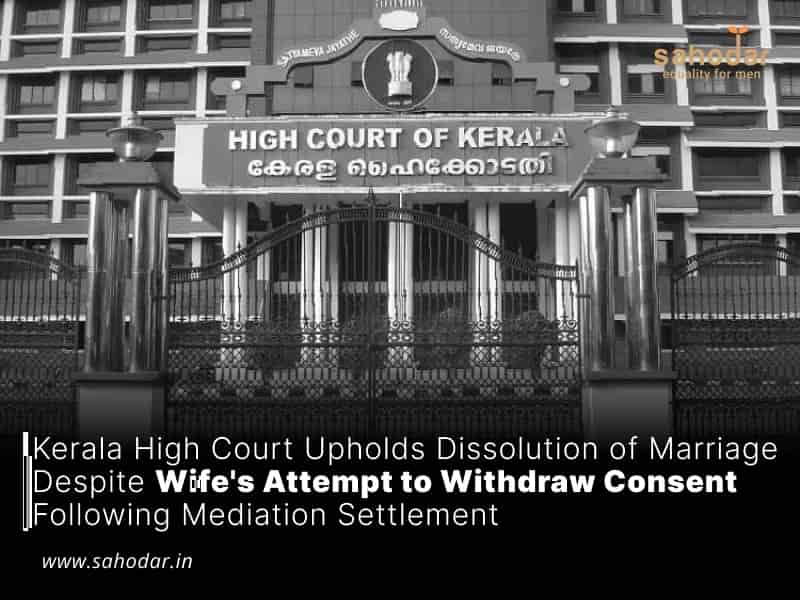The Kerala High Court upheld the Family Court’s decision to dissolve the marriage between the parties despite the wife’s withdrawal of consent for the divorce. The ruling was based on the precedent set in Benny v. Mini (2021) and the Bombay High Court case of Prakash Alumal Kalandari v. Jahnavi Prakash Kalandari (2011). The Division Bench, composed of Justice Anu Sivaraman and Justice C Pratheep Kumar, emphasized that once a settlement is reached through mediation and one party fulfills their obligations, unilateral withdrawal of consent by the other party is not permissible.
In rejecting the appellant’s appeal, the Court declared that,
“Several litigations are pending between the parties before various courts including petition for divorce, custody of child and patrimony. All those cases were settled in mediation and the parties agreed to dissolve their marriage by mutual consent. Accordingly, the parties filed a joint petition for divorce, received part payment, disposed of the pending cases and thereafter at the final stage when the case was taken up for evidence to record the consent of the parties, the appellant withdrew her consent.”
Background:
The appellant in this case was the wife of the respondent. They entered into marriage in 2014 but have been living separately since 2018, with several legal disputes pending before various courts. In 2022, they resolved all their disputes through a mediation agreement that included terms for settlement. According to this agreement, the respondent committed to paying sixteen lakhs rupees to the appellant, granting her permanent custody of their child, and both parties agreed to dissolve their marriage through mutual consent.
Although they filed a mutual divorce petition, the appellant later withdrew her consent for divorce. She argued that the mediation agreement was not entered into willingly or with her full consent and that she did not desire to end her marriage with the respondent. However, the respondent contended that he had already made a partial payment of the settlement amount as per the mediation agreement. Relying on the precedent set in Benny v. Mini (2021), the Family Court granted a decree dissolving the marriage.
Appeal to High Court:
Displeased with this decision, the appellant approached the High Court to challenge the judgment of the Family Court, which dissolved her marriage with the respondent.
Court Observations:
The appellant cited Jayaraj R. v. Kaya G. Nair (2023) to argue that parties could retract their consent for divorce at any point before the decree was issued.
The respondent countered, asserting that the appellant had no justification for withdrawing her consent after both parties had mutually agreed to a mediation agreement containing terms of settlement.
The Court stated that the Family Court granted divorce by relying upon the judgements in Benny (supra) and Prakash (supra). It said: “…Family Court held that unilateral withdrawal by one party after the other party has performed his part of the terms in the memorandum of agreement is a sharp practice which cannot be permitted or tolerated for a moment as it would shatter the faith of the litigants in the justice delivery system and make a mockery of the alternative dispute resolution mechanism.”
Taking into account the case’s particulars, the Court affirmed that the parties were covered by the precedents set in Benny (as mentioned) and Prakash (as mentioned). Consequently, it upheld the Family Court’s decision to dissolve the marriage despite the appellant retracting her consent. Therefore, the Court rejected the appeal.

